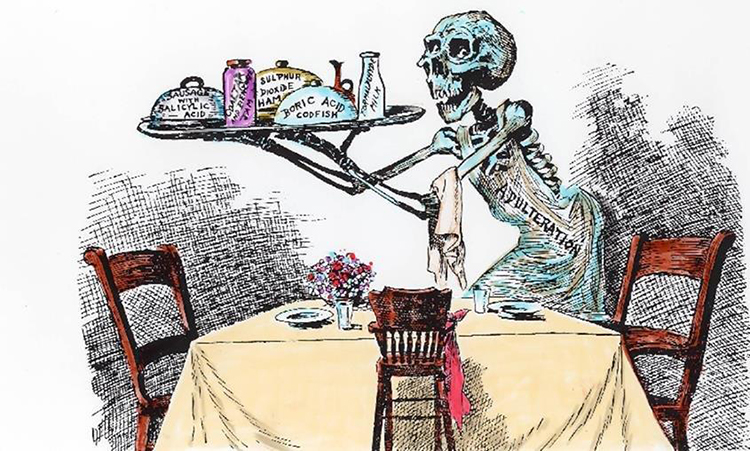
This is not it. The frequently used packaged products in the food and beverage industry release Endocrine Disruptors, in which are detrimental to human health, when exposed to large amounts. The Food and Drug Safety departments in many countries are imposing laws and regulations to tackle such concerns. However, it is not uncommon to witness numbers of different seasoning products that contain chemicals in our cupboards and cabinets. To find out more about chemical additives in our food, I interviewed Peggy Chan, a well- known vegan food expert and the founder of Grassroots Pantry in Hong Kong.

From the interview with Chan, I was able to hear about the chemical components of the food, the problems regarding such use, and the prospect of the body and eco-friendly culinary industry in the future. First and foremost, Chan explains that talking about the use of chemical additives is crucial because such problem directly correlates with the nutrients in food, and furthermore, health and environment. Her ideology is that “food should be whole; where you are consuming the whole foods is where you are actually going to get most of the good nutrients.” Here, she delineates how, in contrast, the excessive ingestion of chemically processed foods and not the whole foods can develop into severe health issues, specifically non-communicable diseases. “Most of the non-communicable diseases, what we call ‘modern diseases’ that most people are affected by, like obesity, diabetes, heart diseases, and cancer, are born out of the chemically processed foods that we eat”. Specifically, she attributes the adverse effects of ingestion of these chemicals to the way that we have been growing food and neglecting natural ingredients. For instance, with the end of World War II, the use of pesticides increased significantly as the remnants of the chemicals used during the war turned to be utilized as pesticides at the farms. Chan argues, however, that this modern employment of pesticides for growing food is detrimental because the chemical not only gets rid of bugs but also decimates the good enzymes and bacteria in the food. “I always refrain anyone from consuming anything that has been sprayed or injected with growth hormones and antibiotics; that way, our body will become resistant to natural antibodies.” Chan believes that the essential way to restore the consumption of beneficial nutrients interfered by the utilization of chemicals fundamentally lies in the more natural way we grow food in fertile soil, manufacture food, and deliver to the reselling restaurants.
Besides the impact of chemicals in the food processing system, the current trends of the restaurant business - packaging and delivery - also look to the plastic containers. These containers are also controversial in that the chemical constituents of which, including infamous Bisphenol A, act as endocrine disruptors and exert a harmful influence on human body.
Moreover, disposal of these plastics is another nuisance. While it is crucial to take the demands of the markets into the account, I inquired Chan how she deals with the inevitable use of plastic containers that can be harmful to human body and the environment. To this problem, she says that “this is a matter that business owners cannot solve on our own.” Indeed, businesses can possibly try to use corn starch and pulp to create eco-friendly, composable materials. However, in fact, the price does not allow the people to enter, to actually buy, to fully diminish any kind of plastic use. She views this crisis not from the consumer and producer level, but extends it to the political level: “only government pushing policy and banning the use of plastic will effectively reduce the usage of harmful chemical substances in culinary and market industry.”
Of course there are beneficial chemical substances as well as the harmful ones. While the pleasure from the taste of foods is what makes our foods valuable, one can not disregard the importance of a healthy diet and its long term benefits. It is the responsibility for the government, consumers, and experts in the food industry to inform and publicize the side effects of chemical additives.

Hyemin Julie Park
Grade 11
Linden Hall

